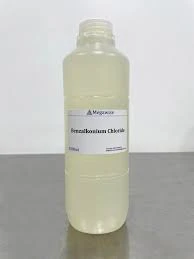Exploring Corrosion and Scale Prevention Techniques for Enhanced Industrial Equipment Longevity
Corrosion and Scale Inhibitors Essential Solutions for Industrial Applications
Corrosion and scale formation are two significant challenges faced by industries that rely on water systems, particularly in the oil and gas, chemical, and power generation sectors. These issues can lead to severe equipment degradation, increased operational costs, and even catastrophic failures. To mitigate these risks, the use of corrosion and scale inhibitors has become a fundamental component of industrial maintenance strategies.
Understanding Corrosion
Corrosion is a natural process where metals deteriorate due to interactions with their environment, typically through electrochemical reactions. Water, especially when containing dissolved salts and oxygen, can accelerate this deterioration. The effect of corrosion is particularly pronounced in environments with high temperatures and pressures, where the speed of the reaction increases. The consequences of corrosion are extensive, including reduced equipment lifespan, unscheduled downtime, and increased maintenance costs.
The Role of Corrosion Inhibitors
Corrosion inhibitors are chemical substances that, when added to a corrosive environment, significantly decrease the rate of metal degradation. They work by forming a protective film on the metal surface, thereby reducing its interaction with corrosive agents. Common types of corrosion inhibitors include
1. Anodic Inhibitors These compounds increase the anode polarization, reducing the corrosion reaction rate. They are effective in environments where pH levels are higher, such as in cooling water systems.
2. Cathodic Inhibitors These increase the cathodic polarization and affect the reduction reaction, thereby combating rust formation. They are often used in acidic environments.
3. Mixed Inhibitors As the name suggests, these inhibitors provide a dual protective action by addressing both anodic and cathodic processes. They are versatile and suitable for various applications.
corrosion & scale inhibitors

Scale Formation and Its Implications
Scale formation occurs when dissolved minerals in water precipitate and deposit on surfaces, particularly in areas of high temperature or evaporation such as boilers and heat exchangers. Common scales include calcium carbonate, magnesium sulfate, and silica. These deposits can severely restrict water flow, insulate heat transfer surfaces, and lead to overheating, ultimately causing equipment failure.
The Role of Scale Inhibitors
Scale inhibitors prevent the formation and deposition of these harmful scales. They often work by interfering with the crystallization process of scale-forming compounds, either by altering nucleation or by dispersing existing particles. There are several types of scale inhibitors
1. Threshold Inhibitors These are effective at very low concentrations and prevent scale formation by altering the conditions under which crystals form.
2. Polymers These large molecules can impede the growth of scale crystals and keep them in suspension, allowing them to be flushed away before they can deposit.
3. Phosphate-Based Inhibitors Used mainly in cooling water systems, these compounds help control the levels of scale-forming ions while providing additional corrosion protection.
Conclusion
The use of corrosion and scale inhibitors is critical in maintaining the integrity and efficiency of industrial systems. Their application not only prolongs equipment life but also reduces maintenance costs and enhances operational reliability. As industries continue to evolve, the development of more effective and environmentally friendly inhibitors remains a priority for scientists and engineers alike. Investing in these technologies is not merely a matter of maintenance but a strategic move toward sustainability and economic efficiency in industrial operations.
-
2-Phosphonobutane-1,2,4-Tricarboxylic Acid: Scale & CorrosionNewsAug.29,2025
-
Premium Isothiazolinones | Broad-Spectrum Biocidal SolutionsNewsAug.28,2025
-
LK-319 Special Scale And Corrosion Inhibitor For Steel Plants: Advanced Solutions for Industrial Water SystemsNewsAug.22,2025
-
Flocculant Water Treatment: Essential Chemical Solutions for Purification ProcessesNewsAug.22,2025
-
Isothiazolinones: Versatile Microbial Control Agents for Industrial and Consumer ApplicationsNewsAug.22,2025
-
Scale Inhibitor: Key Solutions for Water System Scale PreventionNewsAug.22,2025





